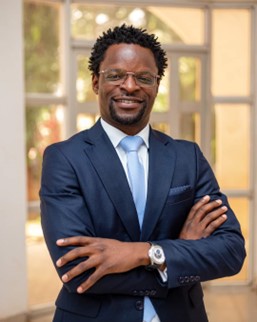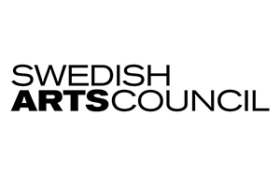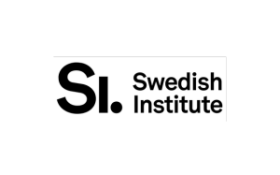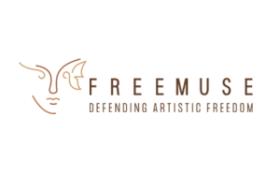By Anthi Polatidou & Lisa Sidambe
Human Rights Media Consultant & Research and Advocacy Consultant
Nhimbe Trust

Dr. Musa Kika
Photo: Courtesy of Dr. Musa Kika
In many African countries, religious and customary courts hold significant sway in shaping artistic expression and artists’ behavioral conduct, with decisions often impacting personal freedoms, justice, and access to rights. But when these decisions come into conflict with secular laws or international human rights standards that promote and protect artistic freedom, the question arises: how should such cases be handled, and where should the line be drawn between religious law and human rights protections?
In an insightful interview, Dr. Musa Kika, Executive Director of the Institute for Human Rights and Development in Africa (IHRDA), shared his perspectives on the intersection of religion, human rights, and the African legal landscape.
The influence of religion in the development of laws
Religion and faith systems are widely respected in most if not all African countries, and have informed frameworks that guide the interpretation and enforcement of laws. In Muslim countries or sub-regional societies especially, an entire legal system may be based on religion.
As a result of this influence religion and faith systems have on laws and societal standards, artistic freedom regulation ends up informing what an artist should do, say or create; when, where and how, as a matter of religious standards rather than artistic practice or personal preferences. This type of regulation sometimes runs afoul of national constitutions or international human rights frameworks.
In shedding light on how religion got to have this relationship with existing laws and regulations, Dr. Kika explained that “a lot of the laws that we have were built out of canon law, which is religious law.
"They may be “couched as rooted in morality, but many of them are rooted in religion."
As a specific example, Dr. Kika pointed to the proliferation of public decency laws and explained that
“those are religious laws that have now transformed to become morality laws, and they are still accepted as laws in our statutes, but that's religion.”
This explanation is key to understanding why religion and religious beliefs are often referenced in decisions made by authorities when artists and artistic content are restricted using the rationale of upholding decency and morality.
The position of human rights in religious and secular legal systems
One of the challenges encountered by artists and cultural professionals in countries and sub-regional states that use both religious and secular legal systems is lack of awareness about the functions and limitations of these systems, independently and in relation to each other. Often, decisions by religious courts and other religious authorities are accepted without a challenge due to lack of knowledge about whether or not an appeal can be made, to whom and following what process.
Dr. Kika explained that the interaction between religious courts and secular courts can vary significantly from country to country.
“If your constitution says you can’t review a decision from a religious court in a secular court, so be it. That’s what the law of that country says,”
he added. However, he argued that religious decisions should be reviewable in secular courts to ensure consistency with fundamental human rights principles.
Stressing the need for objective platforms to adjudicate matters that are grounded in religious teachings but may conflict with universal human rights, Dr. Kika stated that religious courts should not be above review, especially when decisions infringe upon basic rights.
"Nothing should be beyond review. Nothing should be beyond appeal,"
Kika emphasized, drawing attention to the importance of safeguarding due process for everyone, regardless of the forum in which they are tried.
As has been the practice in some African countries where artistic freedom is regulated by religious leaders, religious courts and religious standards, decisions on undue restrictions are neither appealed nor criticized out of fear of backlash by religious leaders who may see such action as excessive interference impacting their ‘divine duties.’ In view of these realities, Dr. Kika asserted that while religious leaders may resist judicial oversight and public criticism, often viewing it as an attack on their authority, secular courts must maintain the right to ensure that decisions are fair and just.
“You will allow them to complain, but that shouldn’t stop the review from happening,”
Dr. Kika remarked. This resonates with the broader question of how secular courts can handle decisions made by non-state actors like religious leaders or customary chiefs. The challenge is navigating the tensions between respecting cultural and religious traditions, upholding universal human rights and holding States to account on their international human rights obligations.
Another critical component of human rights law which accompanies judicial oversight is the right to be informed of a charge and the right to respond to accusations made. According to Dr. Kika, many religious and customary court systems fall short of these basic rights through denying the accused an opportunity to defend themselves.
“That completely undermines due process,”
Kika remarked.
“Every kind of trial requires a charge to be put on the table, and you allow the accused to respond. You allow them to have their day in court, or before a tribunal.”
Violations of rights to a fair trial are especially concerning when artists and cultural professionals are declared wanted and have punishments imposed without being afforded an opportunity to respond. In some instances, we have observed, artists and cultural professionals become aware of charges made and punishments imposed with the rest of the public, through press statements or public warrants of arrest issued by authorities. Failure to attend ‘meetings’ at the invitation of religious leaders and religious law enforcement officers also constitutes acts that are classified as wrongdoing punishable by means that do not afford the accused a right to respond.
Punishments and human rights violations
One of the most contentious areas of law involves some punishments imposed under religious or customary systems, in direct conflict with internationally recognized human rights norms. In Nigeria’s Kano State for example, flogging, stoning, and the death penalty are sanctioned under the state’s Islamic law. These punishments may be imposed for artistic expressions that are blasphemous or are seen to severely contradict Islamic values, violating core human rights principles like the right to life and protection from inhumane or degrading treatment. One such case from Kano State involves Yahaya Sharif-Aminu, a musician who was found guilty of making blasphemous remarks in a song he released and circulated on Whatsapp. In 2020, he was sentenced to death by hanging by a Sharia Court, and has been appealing the sentence in circular courts.
Dr. Kika acknowledged that the death penalty remains a contentious issue, especially in countries where religion has historically been the foundation of legal frameworks. He pointed to the broader historical context:
"It's not only Islamic law, but even Christianity. Read the Bible, people were stoned in the Bible. The death penalty can also be seen as a practice from the days when religious law was the law."
But, Kika argued, modern human rights perspectives have evolved. He noted that international law increasingly opposes the death penalty, with the sanctity of life being a fundamental value.
"We are understanding the sanctity of life greater than the way it was understood back then, when religion was the only law,"
Kika asserted.
While some countries are abolishing the death penalty, those still permitting it through various laws argue that although it has not been abolished, there are no executions being carried out, for those with such a sentence. Others argue that their judicial systems do not impose a death penalty at all, even when such sentencing is provided for in criminal law. Increasing awareness of the need to abolish the death penalty in line with international human rights law, standards and norms continues to provide a strong foundation to challenge these practices globally, for the ultimate abolition of all laws that allow capital punishment.
Punishments for indecency
On matters of enforcing strict moral guidelines that promote public decency according to religious standards, Kano State’s religious law has some problematic legal practices. Some punishments that have been imposed mostly on women accused of indecency include forced psychiatric evaluations and compulsory religious schooling supervised by the Islamic police, the Hisbah. These practices, according to Kika, violate international human rights law, including provisions under the African Charter on Human and People’s Rights.
“These practices are wrong,”
Kika asserted. Rights.
“You can't force someone to attend religious school under the watch of the police as punishment. You can’t do that.”
He pointed out the contradiction in justifying such practices and the irony of forcing individuals to undergo what is, in essence, a religious education under duress. For Kika, these punishments are emblematic of larger systemic issues that need to be addressed through legal reform.
“There is no justification for those practices. They must be struck down,”
he emphasized.
Challenging the status quo: Advocating for reform
When discussing how challenges encountered in the use of religious legal systems can be addressed, Dr. Kika emphasized the importance of legal reform at the national level. He suggested that advocacy efforts should not focus solely on religious leaders but instead target the legal frameworks that uphold these practices. He recommended that human rights organizations push for the domestication of international human rights norms within national constitutions and legislation.
“We need those international norms to be domesticated at the national level,”
Kika explained.
“Domestic law is more powerful than international law because things at the domestic level are enforceable.”
However, Dr. Kika also acknowledged the challenges in changing deeply ingrained societal practices, particularly when these practices are supported by the majority of citizens.
"You have people who have lived with these practices for so long, and the thought of change is daunting,"
he said.
"But this is where the work of human rights defenders is critical: pushing for systemic reforms, both at the legal and societal level."
Conclusion
Navigating the complex relationship between religion, belief systems and human rights obligations is a complex process. It requires a careful balance of promoting a culture of human rights protection, while ensuring that citizens are adequately educated on the harm of some religious practices that they hold dear to and have been passed down for generations. Fairness, accountability and respect for human dignity should be the foundation of every society and the anchor of both legal reform and strategic advocacy. As Dr. Kika emphasized throughout the interview, the road ahead may be challenging but without setting the normative framework and standards required, as guided by international law, change will not occur fast enough.
Anthi is the Human Rights Media Consultant for Nhimbe Trust & Lisa is the Research and Advocacy Consultant for Nhimbe Trust.





